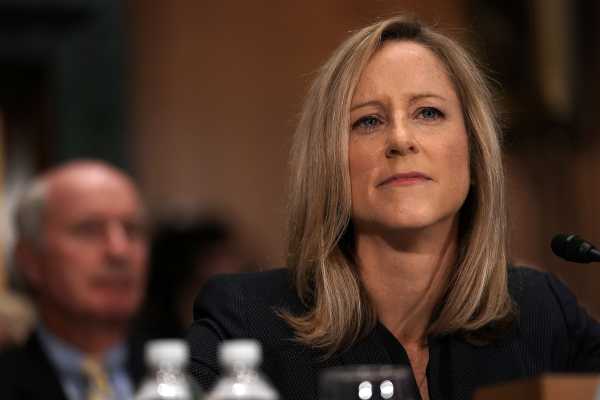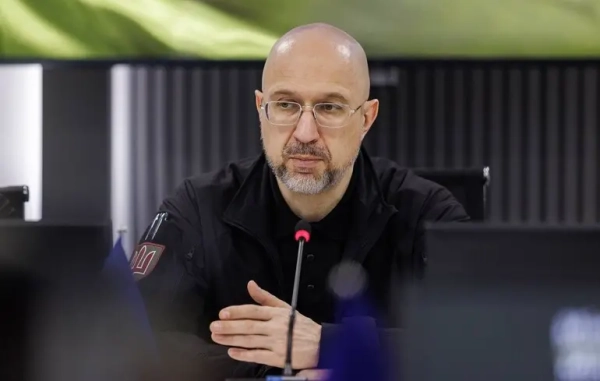
The US Senate voted to confirm Kathy Kraninger as the next head of the Consumer Financial Protection Bureau (CFPB), the federal government’s top consumer watchdog. If you haven’t heard of her, don’t worry — before she was tapped to head the agency, neither had pretty much anyone else.
Kraninger, who was confirmed by a 50-49 vote, served as associate director for general government programs at the Office of Management and Budget (OMB), overseeing a $250 billion budget across seven Cabinet departments, including the Department of Homeland Security and the Department of Justice.
She will take permanent charge over the CFPB and replace Mick Mulvaney, who became interim director of the bureau after Richard Cordray, its first director, stepped down in November 2017. Mulvaney, who is also head of the OMB, has been a controversial figure at the helm of the CFPB; critics say he’s sought to undermine its mission and scale back its enforcement and oversight efforts.
Those same critics have echoed concerns about Kraninger, wondering whether she’ll continue on the same path as Mulvaney at the CFPB. They also point to her lack of experience in the consumer sector.
That’s why Kraninger’s nomination, which President Trump announced in June, has been such a head-scratcher: She doesn’t appear to have much discernible knowledge of or interest in consumer protection and financial services, and she wasn’t on anyone’s radar before her nomination.
It’s not all that dissimilar to Matthew Whitaker’s appointment as acting attorney general after Jeff Sessions was ousted in November. Whitaker, previously Sessions’s chief of staff, had no obvious qualifications for the job other than that he appeared to be a Trump loyalist. As an OMB official in the Trump administration (and therefore also under Mulvaney), Kraninger was the loyal person for the job, if not the right person.
Karl Frisch, executive director of the consumer watchdog organization Allied Progress, said in a statement that not only does Kraninger lack the experience necessary for the job, “she has repeatedly refused to answer even the most basic questions about her record or her views on pressing consumer financial issues.”
The CFPB has always been controversial, and especially so under Trump and Mulvaney
The CFPB was created under the Dodd-Frank financial reform and formed in 2011. Its mission is to protect consumers who are dealing with banks and taking on debt, including mortgages, student loans, and credit cards. Under its first director, Cordray, who was confirmed in 2013, the bureau by its own tally handled more than 1.2 million consumer complaints and brought about nearly $12 billion in relief for harmed consumers.
It’s been a controversial bureau since its inception, with many Republicans, including Mulvaney, citing it as an example of government overreach and claiming its single-director structure consolidates too much power in one person’s hands.
Under Mulvaney, who once called the bureau as “sick, sad” joke, the CFPB took a sharp turn in its activities. Mulvaney reportedly scaled back an investigation into the Equifax data breach, relaxed restrictions on often predatory payday lenders, and recommended Congress pursue sweeping changes to the CFPB’s powers.
He disbanded all of its advisory boards and councils and went as far as to try to change its acronym to the BCFP — the Bureau of Consumer Financial Protection — a maneuver that by one estimate could cost companies $300 million. In August, the CFPB’s top student loan watchdog quit, saying current leadership had “turned its back on young people and their financial futures.”
The Washington Post recently outlined how the CFPB has gotten “smaller, quieter, and less active” under the Trump administration and Mulvaney: Enforcement actions are sharply down, its workforce has shrunk, and it’s released fewer reports.
Kraninger overcame a lot of opposition
Kraninger’s nomination was controversial, and she overcame significant opposition from progressives on a number of fronts.
Many Democrats have expressed concern with her potential involvement in the Trump administration’s “zero tolerance” immigration policy that resulted in the separation of hundreds of children from their parents at the border. At the OMB, both the Department of Homeland Security and Department of Justice were presumably in Kraninger’s portfolio. Both were involved in family separation, and Democrats pushed to find out what Kraninger knew about the issue and when.
Progressives have also expressed concern that Kraninger will be a sort of Mulvaney clone at the CFPB and won’t take its enforcement and oversight responsibilities seriously.
Sen. Elizabeth Warren (D-MA), who originally proposed the idea for the CFPB as a professor at Harvard, has been a fierce critic of Kraninger’s nomination and raised concerns on both of those fronts and others.
“It isn’t Ms. Kraninger’s management experience that got her a giant promotion, it’s her enthusiasm for Mick Mulvaney’s anti-consumerism agenda that earned her this reward from President Trump,” Warren said on the Senate floor last week.
Warren noted that in Kraninger’s confirmation hearing, the nominee said she couldn’t identify “any actions” taken by Mulvaney at the CFPB “with which I disagree.”
Given her confirmation, we’ll soon find out how similar Kraninger’s agenda at the CFPB will be to Mulvaney’s.
Sourse: vox.com






